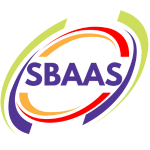Unlock Real Growth: Why Systemising Your Business Isn’t Optional
How to Systemise Your Business for Sustainable Growth
Running a small business in Australia is rewarding, but it’s challenging. Many owners juggle roles, rely on memory for processes and constantly put out fires. Over time, this causes stress, slows operations, and caps growth potential. But there’s a better way.
Systemising your business means turning chaos into clarity. It helps you build innovative, repeatable systems that free up your time, improve performance and enable growth without burning out.
Effective business systems are your secret weapon for sustainable success, whether you’re a sole trader, running a growing team, or scaling across regions.
What Is Systemisation?
Systemisation transforms how your business works, shifting from ad hoc operations to defined, repeatable procedures. Instead of relying on memory, staff knowledge or daily improvisation, your business operates through proven workflows that anyone can follow.
Systemisation means:
- Creating consistent processes for recurring tasks
- Documenting how things should be done
- Using technology to streamline tasks
- Ensuring your team understands and follows these processes
Think of it as putting your business on autopilot for the tasks that don’t need daily attention. This creates space to focus on what really matters: strategy, growth and leadership.
Benefits of Business Systems
Systemising your business brings measurable improvements across performance, scalability and profitability. Here’s what you can expect:
- Less chaos, more control
No more firefighting or relying on staff memory. Clear systems make it easier to track what’s working, what isn’t, and where to focus your energy.
- Reduced errors and rework
Mistakes often happen when people “wing it.” Systems standardise tasks, improving consistency and reducing costly errors.
- Improved staff onboarding and training
When systems are documented, new team members get up to speed faster, reducing your onboarding time and minimising disruption.
- Increased efficiency
With structured processes and automation tools, tasks get done faster. This frees up your team’s time for high-value work.
- Higher profit margins
Efficient systems reduce labour waste, maximise resources and boost your bottom line. That’s sustainable growth in action.
- Easier delegation
You no longer have to be the bottleneck. Systems empower your team to take ownership, follow procedures and deliver outcomes.
- Stronger customer experience
Reliable systems mean customers get consistent service, fewer delays and better outcomes, every time.
Explore how SBAAS helps small businesses unlock growth with intelligent workflow automation and streamlined operations.
How to Make Your Business Systematic
Systemising your business doesn’t mean turning into a robot. It means designing a structure where it counts. Follow these steps to get started:
- Identify your repeatable tasks
Start by listing all recurring activities: customer onboarding, invoicing, marketing campaigns, and staff rostering.
- Prioritise your pain points
Where are you losing time? What tasks cause the most frustration or mistakes? Focus on systemising these first.
- Document your processes
Write down or record how tasks should be done. Be clear, use plain language and keep instructions easy to follow.
- Choose the right tools
Use platforms that simplify operations. From CRMs to task automation apps, technology can reduce manual work dramatically.
- Involve your team
Systems work best when people use them. Train your team and encourage feedback to improve system adoption.
Steps to Build Systems That Stick
Systemising your business is a project in itself, but a highly valuable one. Use this step-by-step guide to roll out systems with impact.
Step 1: Map Your Current Workflows
Create a visual flowchart or checklist of how tasks are currently performed. This helps identify inefficiencies and duplication.
Step 2: Define Your Ideal Process
Now, redesign that process to be faster, simpler and easier to follow. Cut unnecessary steps and focus on outcomes.
Step 3: Document the Process
Use templates, guides or screen recordings to document the new process. Break it down step-by-step so anyone can follow it.
Step 4: Systemise with Technology
Use tools that align with your business needs. For example:
- Task management: Trello, ClickUp, Asana
- CRM and customer communication: MS Dynamics, Salesforce, ServiceM8
- Marketing automation: Constant Contact
- Scheduling: Calendly, Deputy
- Invoicing and finance: Xero
Explore SBAAS’ tailored marketing and growth systems designed specifically for small Australian businesses.
Step 5: Train and Delegate
Introduce your new system to your team. Walk them through the process and give them ownership of specific steps.
Step 6: Monitor and Improve
Check how your systems are working. Are they saving time? Reducing mistakes? Update them as your business evolves.
Common Pitfalls to Avoid
Systemising your business is powerful, but some traps can derail your progress. Here’s what to avoid:
Overcomplicating systems
Keep it simple. If a process is too complex to follow, your team won’t use it.
Ignoring team input
Systems created without feedback often fail. Involve those who use them daily.
Failing to update systems
Businesses grow and change. What worked a year ago may no longer be efficient.
Relying too heavily on tech
Technology supports systems, but it doesn’t replace good processes. Get the fundamentals right first.
Not measuring outcomes
You can’t tell if your systems are helping without measuring efficiency or ROI. Track key indicators.
Why Systemisation Matters for Australian Small Businesses
In Australia, over 97% of all businesses are small businesses. Many operate with limited resources, which makes efficiency critical. Systemisation is a growth lever that helps you do more with less, especially in competitive or uncertain economic conditions.
With wage pressures, regulatory compliance, and digital transformation impacting local businesses, well-documented and automated processes can distinguish between thriving and surviving.
Global competition and customer expectations are rising. Systemising allows small Australian businesses to compete confidently by delivering speed, reliability and value.
Now is the time to future-proof your operations with practical, flexible systems designed to support growth, attract talent and retain customers.
Ready to Systemise Your Business?
Whether you’re just starting or looking to scale, smart systems will help you achieve growth without overwhelm.
SBAAS helps Australian small businesses streamline operations, improve profitability and reduce chaos. From workflow automation to growth-focused consulting, our team is here to guide you.
Learn more about how we support businesses like yours at our About Us page or book a conversation to get started today.
Sources
- Australian Bureau of Statistics. (2023). Counts of Australian Businesses, including Entries and Exits.
- Digital Transformation Agency. (2022). Digital transformation for small business.
- Small Business Ombudsman. (2024). Small business resources.
- Nielsen Norman Group. (2022). How Users Read on the Web.
- ServiceM8. (2024). Smart Job Management.

Eric Allgood is the Managing Director of SBAAS and brings over two decades of experience in corporate guidance, with a focus on governance and risk, crisis management, industrial relations, and sustainability.
He founded SBAAS in 2019 to extend his corporate strategies to small businesses, quickly becoming a vital support. His background in IR, governance and risk management, combined with his crisis management skills, has enabled businesses to navigate challenges effectively.
Eric’s commitment to sustainability shapes his approach to fostering inclusive and ethical practices within organisations. His strategic acumen and dedication to sustainable growth have positioned SBAAS as a leader in supporting small businesses through integrity and resilience.
Qualifications:
- Master of Business Law
- MBA (USA)
- Graduate Certificate of Business Administration
- Graduate Certificate of Training and Development
- Diploma of Psychology (University of Warwickshire)
- Bachelor of Applied Management
Memberships:
- Small Business Association of Australia –
International Think Tank Member and Sponsor - Australian Institute of Company Directors – MAICD
- Institute of Community Directors Australia – ICDA
- Australian Human Resource Institute – CAHRI
-

Business in the Wonderful World of Oz – Workplace Health and Safety – A Comprehensive Guide
$29.95 Add to cart -

Business in the Wonderful World of Oz – Risk Management – A Comprehensive Guide
$29.95 Add to cart -

Business in the Wonderful World of Oz – Property Leasing – A Comprehensive Guide
$29.95 Add to cart -

Business in the Wonderful World of Oz – Intellectual Property Rights – A Comprehensive Guide
$29.95 Add to cart -

Business in the Wonderful World of Oz – Future-Ready: Navigating Change and Seizing Opportunity in Australian Business
$29.95 Add to cart -

Business in the Wonderful World of Oz – Fair Work – A Comprehensive Guide
$29.95 Add to cart -

Business in the Wonderful World of Oz – Export and Global Trade – A Comprehensive Guide
$29.95 Add to cart -

Business in the Wonderful World of Oz – Cyber Security – A Comprehensive Guide
$29.95 Add to cart -

Business in the Wonderful Land of Oz – Australian Consumer Law – A Comprehensive Guide
$29.95 Add to cart -

Business in the Wonderful World of Oz – Crisis Management
$29.95 Add to cart -

Business in the Wonderful World of Oz – The Ultimate Guide
$29.95 Add to cart
